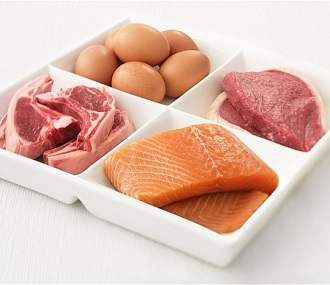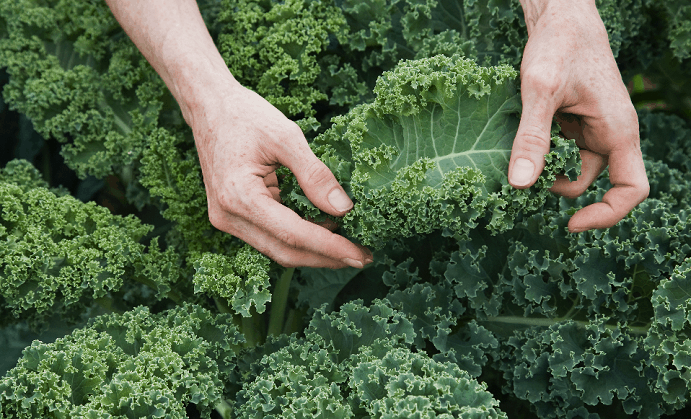Also called Hashimoto’s disease, Hashimoto’s thyroiditis is an autoimmune disease, a disorder in which the immune system turns against the body’s own tissues. In people with Hashimoto’s, the immune system attacks the thyroid. This can lead to hypothyroidism, a condition in which the thyroid does not make enough hormones for the body’s needs. Located in the front of your neck, the thyroid gland makes hormones that control metabolism. This includes your heart rate and how quickly your body uses calories from the foods you eat.
Hashimoto’s thyroiditis tends to occur in families. It can be associated with other autoimmune conditions such as type 1 diabetes or celiac disease. Hashimoto’s thyroiditis is 5 to 10 times more common in women than in men and most often starts in adulthood. Blood drawn from people with Hashimoto’s thyroiditis typically reveals an increased number of antibodies against thyroid-specific proteins, including thyroperoxidase and thyroglobulin. T lymphocytes, a type of cell involved in the inflammation process, invade the thyroid gland cause silent, painless inflammation that destroys it; ultimately, the individual produces little or no thyroid hormone and becomes hypothyroid.
Below are mentioned certain changes in one’s diet that can help ease the problem.
 Proteins– It is advised to consume 20 grams of protein (3–4 oz) at each meal and particularly animal proteins. Also, aim for 1–2 oz at snack time, with Cold-water fish is an exceptional choice, as it contains omega-3 fatty acids.
Proteins– It is advised to consume 20 grams of protein (3–4 oz) at each meal and particularly animal proteins. Also, aim for 1–2 oz at snack time, with Cold-water fish is an exceptional choice, as it contains omega-3 fatty acids.- Healthy Fats- 4–6 tablespoons per day of “good fats” from avocados, nuts, and seeds (especially pumpkin, chia, and flax), organic pastured butter and ghee, extra virgin olive oil, and coconut milk,meat & oil.
- Antioxidant-Rich Foods – focus on getting plenty antioxidant-rich foods are necessary to fight the free radical damage caused by the inflammatory process. Emphasis on vitamin-A containing foods is especially helpful, because vitamin A is often deficient in people with any type of autoimmune condition.
- Vitamin A and Beta-Carotene Rich Foods: carrots, cooked calf’s liver, cod liver oil, eggs, Greek yogurt, lightly cooked spinach, kale, collard greens, Swiss chard, winter squash, red bell peppers, apricots; cantaloupe & sweet potato.
- Vitamin C Rich Foods: red bell peppers, parsley, broccoli, citrus fruits, romaine lettuce
- Vitamin E Rich Foods: lightly steamed mustard greens and Swiss chard, sunflower seeds, almonds, avocado
- Iodine Rich Foods: seaweeds (especially very high quality dulse and kelp), seafood (free of mercury and wild, not farmed)

- Zinc Rich Foods: oysters, crab, beef (organic and/or grass-fed), sesame and pumpkin seeds
- Selenium Rich Foods: Brazil nuts, crimini mushrooms, cod, shrimp, halibut, snapper, oats, sunflower seeds, brown rice
- Vegetables – Consume at least 4 cups per day, and choose a wide variety of colorful veggies, eating them lightly cooked or raw. Avoid eating the brassica family raw, as these inhibit thyroid function. Brassicas include broccoli, cauliflower, turnips, etc. Don’t overdo these, in general, though they should be fine in moderation.
- Carbohydrates – Go easy on fruits, grains, and starchy vegetables. Two 1/2 cup servings of fruit per day, plus 1/2 to 1 cup, one or two times per day, of whole grains or starchy vegetables. Soaking or sprouting grains prior to cooking will make them more digestible. An important detail for those with impaired digestion, which is common with hypothyroid. However, unsoaked is fine occasionally, just be sure to chew well.
- Water – Drink at least 8 cups of pure, filtered water daily.
Do you want to find an effective Thyroid treatment? Check out our top rated Thyroid products











